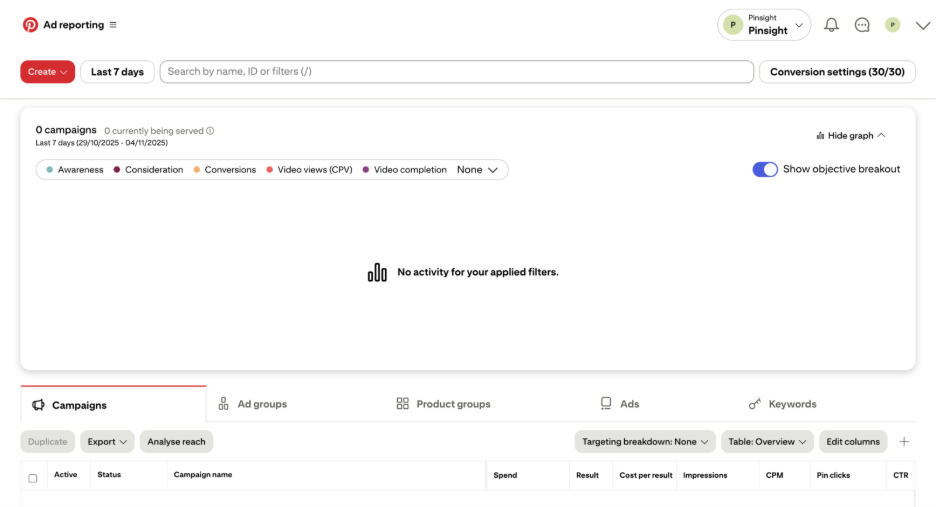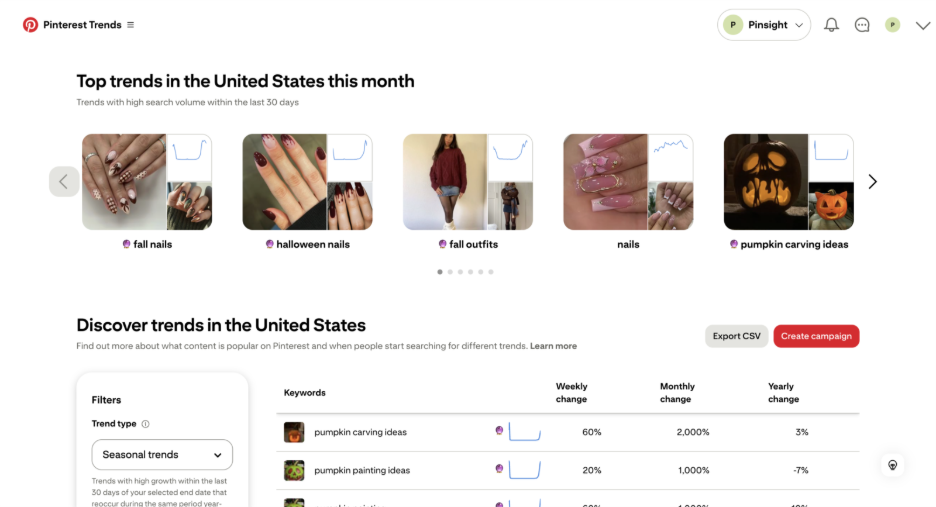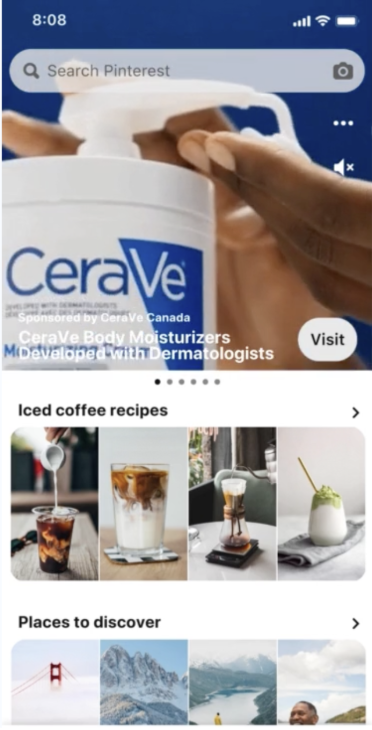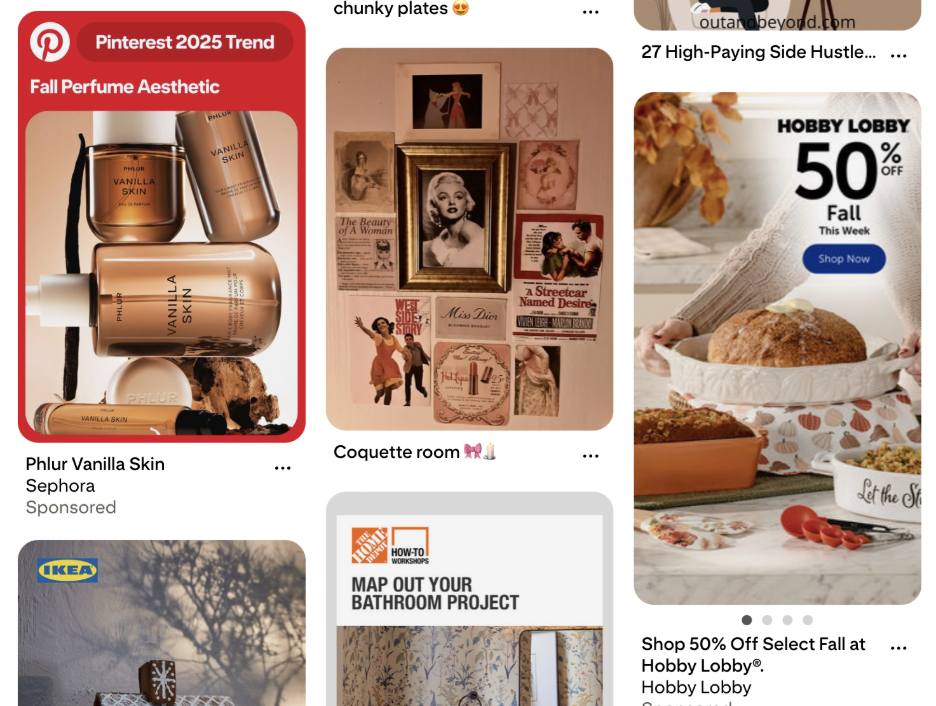

Some of the biggest ecommerce brands are seeing their strongest holiday season ROI on Pinterest this year.
Yeah, you heard that right.
Let’s be honest, every platform feels crowded and noisy right now. Google and Meta have turned into a full-on war for attention, everyone’s chasing the same shoppers, CPCs keep climbing, and it’s getting harder to stay visible without burning through your budget.
While Google clicks average around $2.60 and Meta sits near $1.70, Pinterest comes in at under a dollar per click, with CPMs roughly half of Meta’s at about $4–5 per thousand impressions.
But why should you care about Pinterest right now?
Because every extra dollar spent on ads this season cuts straight into your margins, especially with tariffs already squeezing profit lines.
Pinterest lets you show up where people already plan to buy without overspending on ads just to stay visible.
What’s important to note is that 96% of searches on Pinterest are unbranded. Compare that to Google, where about 45.7% of searches are branded. Those stats scream opportunity.
Take PartyKing, a Sweden-based costumes and party-supply retailer that had to compete in one of the busiest retail windows of the year, Halloween.
They launched their campaign the month before Halloween this year, right when searches for “Halloween décor” and “party ideas” were just starting to climb.
Using Pinterest’s ad tools, they automated targeting, optimized creative delivery, and connected with audiences already shaping their holiday plans
In just three weeks, they saw:
Because if the intent is already there, all you have to do is show up.
Pinterest’s much less crowded, which means your chance of benefitting is greatly increased, even though it has a very large user base- over 570 million active users searching, saving, and shopping every month.
And the holiday window is still open. What you can do is focus on quick, high impact moves that make sense right now.
Here’s how to make a real impact on Pinterest with minimal effort.
And FYI, if you already have a Pinterest account and know your way around it, feel free to skip to the next section where we’ll cover what actually works for visibility this late in the season.
If you’ve never used Pinterest for your brand before, don’t worry, setting up an account takes just a few minutes.
Here’s what to do:

Your intention right now is to create urgency and capture last-minute inspiration that still converts before the season ends. So, start by building focused boards that reflect both the mood and momentum of the holidays, for example:
Pro tip: Use Pinterest Trends to guide your board strategy. It helps you understand what people are actually searching for the keywords, intent, and seasonal spikes behind every query, so your boards are built strategically, not by guesswork.

Create 3–5 quick boards built around what’s trending this week.
Take IKEA’s Halloween collection, for example. This year, they created Pins that captured the essence of the season through their products.

If you’re running a major holiday push or a limited-time campaign, Premier Spotlight is Pinterest’s premium ad placement designed exactly for that.
It gives your brand exclusive visibility for 24 hours at the top of Pinterest’s home or search feeds, using max-width video to capture attention the moment people open the app.
This format is built for big moments like product launches, seasonal sales, or brand awareness pushes where visibility matters more than frequency.
Instead of competing in an ad auction, you reserve this placement for a fixed duration, giving your campaign guaranteed reach across Pinterest’s most viewed surfaces.
It’s ideal for brands that want to dominate discovery during peak shopping days and drive both awareness and traffic in one move.
For instance, CeraVe wanted to increase awareness and consideration for its line of moisturizers reaching new customers, driving education, and building purchase intent.
They supported it with Idea Ads, videos, and static creatives that mixed product education with creator content.
Results:
The campaign also tapped into Pinterest’s “Head to Glow” trend, where searches for “body moisturizer aesthetic” grew 245% year-over-year, positioning CeraVe ahead of the curve in the bodycare category.

Right now, this is one of the easiest upgrades you can make.
Rich Pins automatically sync product info like price, availability, and details straight from your site to Pinterest. Update it once on your website, and it updates everywhere.
And if you’re running an offer or lowering prices for the holidays, Rich Pins update automatically, so your “On Sale” tag or new price appears instantly without re-uploading.

Idea Pins, on the other hand, are short, story-style Pins, videos or carousels that show how to style, use, or build something.
Take West Elm’s “Upgrade Your Shelf Style” example.
They used an Idea Pin to share a quick shelf-styling video with a simple note “starting at $55.” Clean visuals, clear intent. Then, each item in the frame, the vases, candles, and ceramics was linked through the Shop the Look feature.
Now, when someone taps the Pin, they can shop the exact product right there.

A Retail Catalog is a data file that contains all your product information, titles, prices, images, stock levels, and links to your website.
It’s how your products become Product Pins, the shoppable Pins that display your product’s title, description, price, and availability, all pulled directly from your website.
Here’s how it works:
Upload your catalog’s data source to Pinterest, and it automatically creates Product Pins for every item in your feed.
You can choose to:
Once your catalog is connected, you can promote those Product Pins as Shopping Ads, making it easier for shoppers to discover and buy your products across Pinterest.
Pinterest can process up to 20 million products per catalog, and you’ll get alerts if there are any errors in your feed.
Additionally, you can track all your holiday wins in Pinterest Analytics. Use that data to spot your best-performing content of the year, and cross-promote it across your other channels.
It’s a lot, we know. The season’s crowded, ad costs are rising, and everyone’s trying to grab the same limited attention.
Even if you’re starting late, Pinterest is a space where effort compounds for long. In fact, Pinterest’s data shows a single Pin can reach half their total engagement in about 13 months, give or take.
So yeah, it’s worth giving Pinterest a real shot this holiday season.
And while you’re promoting your Product Pins, don’t forget to mention if your items come with shipping protection or, for high-ticket products, an extended warranty.
Because post-purchase is just as important as pre-purchase, that’s where you build trust, reliability, and the kind of confidence that keeps customers coming back.